KYIV (Reuters) – Viktor Pylypenko has become a role model for dozens of LGBT+ Ukrainian war veterans and their supporters since he organised their participation two years ago in Kyiv’s largest ever gay pride march.
Pylypenko, 34, spent almost two years from 2014 to 2016 on the frontline fighting with Kyiv’s forces against Russian-backed separatists in eastern Ukraine in a conflict that has claimed at least 14,000 lives. He came out as gay in 2018.
“(LGBT activism) became a continuation of my personal war against the enslavement of a human being’s freedom,” Pylypenko told Reuters ahead of Kyiv’s annual pride march on Sunday.
And he makes a direct link between his sexual orientation and the cause for which he says he was fighting – a free and sovereign Ukraine in which all enjoy equal rights.
“I volunteered to go to the frontline because I understood that they (the separatists) want to deprive us of freedom, they want to deprive the whole country of freedom. As a gay man, I was very sensitive to this,” he said.
Pylypenko, who has set up a non-governmental organisation to support LGBT+ people in the military, said he received support from other members of his batallion, adding that they were more interested in his military record and commitment than in his sexual orientation.
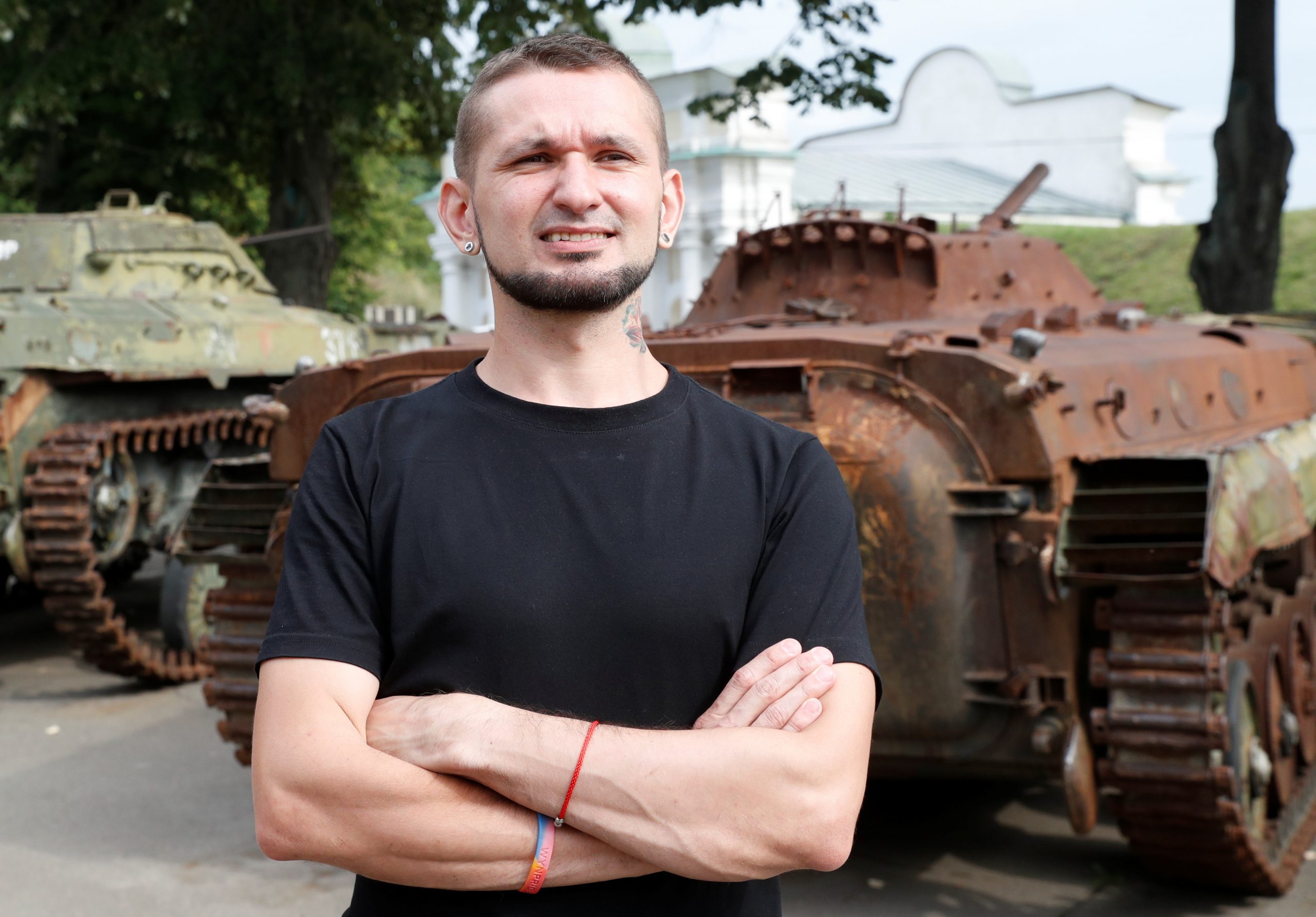
Viktor Pylypenko, a Ukrainian war veteran who fought in the country’s east against pro-Russian separatists, speaks during an interview with Reuters in Kyiv, Ukraine September 1, 2021.
CHANGING ATTITUDES
He believes having more LGBT+ people serving in the military, a respected institution in Ukraine, can help overcome prejudice towards sexual minorities in the ex-Soviet republic.
“The military can change society’s attitudes, they have the reputation, they have trust, they have defended peace in Ukraine,” said Pylypenko, who comes from a military family that he says has accepted his sexuality.
Ukraine’s Western-backed government has increased support for LGBT+ rights in recent years. Parliament outlawed workplace discrimination in 2015, though homophobic attitudes remain fairly widespread.
Gay pride marches regularly attract counter-protests by far-right and religious activists. After Kyiv’s 2015 pride march was disrupted by violent attacks, city authorities deploy a large police presence to maintain order and protect participants.
Pylypenko said his dream was for armed forces divisions to take part in gay pride marches “as allies and to enjoy the fact that they live in a developed country with human rights equality where they are not ashamed of the topic of homosexuality but support it and openly raise rainbow flags”.
sources:
Transportation Secretary Pete Buttigieg and his husband Chasten announced the birth of their son and daughter.
“Chasten and I are beyond thankful for all the kind wishes since first sharing the news that we’re becoming parents,” the Biden Cabinet secretary posted on social media. “We are delighted to welcome Penelope Rose and Joseph August Buttigieg to our family.”
Buttigieg shared last month that he and Chasten, an author and former teacher, had become first-time parents.
One of the twins is named for Buttigieg’s father, Joseph, a Notre Dame professor who died in 2019.
Buttigieg, 39, is a former mayor of South Bend, Indiana who came from obscurity to make a strong impression in the Democratic presidential primary in 2020. He is now the first out gay parent in the US cabinet, having already become the first openly gay person to be confirmed by the US Senate for a cabinet post.
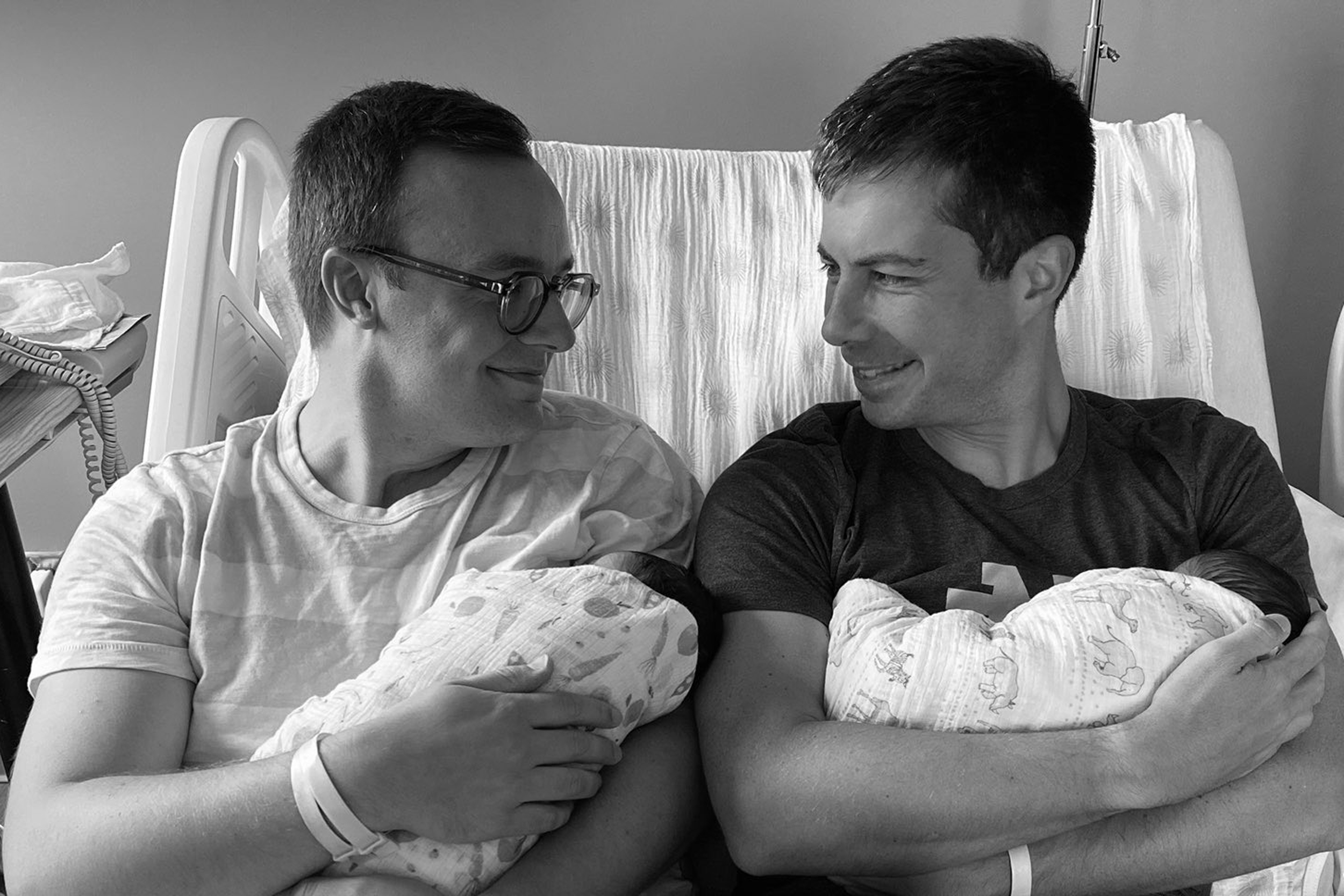
Mr. Buttigieg and Chasten, a former middle school teacher, wed in 2018. Since Mr. Buttigieg entered the national spotlight, they have often sought to upend perceptions of gay relationships.
The couple had been exploring adoption in recent months. Chasten, who wrote a memoir published in June about growing up gay in the Midwest, also recently told USA Today that the couple was navigating the process of starting a family.
“We have quite a few friends in our circle who’ve navigated that, so we’ve just been having a lot of conversations with friends and started trying to figure out what will work for us,” he said.
The couple met in 2015 on the dating app Hinge and married three years later. After being appointed to the Biden cabinet, Pete Buttigieg said: “Travel in my mind is synonymous with adventure, growth and even love, so much so that I proposed to my husband, Chasten, in an airport terminal.
When Pete Buttigieg announced that he and Chasten were looking to adopt, first lady Jill Biden shared his tweet and said: “Congratulations to you and Chasten! Welcome to parenthood!”
sources:
If he’d spoken about his sexuality to the wrong person then, Abdul could have been arrested and taken to court for his sexuality, under Afghan laws.
But since the Taliban seized control of major cities in Afghanistan last week, Abdul tells Radio 1 Newsbeat his sexuality being revealed would now have him “killed on the spot”.
The Taliban are a military group who have taken control of the country, and are known to enforce extreme Islamic ideals.
Under the Taliban’s interpretation of Sharia Law, homosexuality is strictly prohibited and punishable by death.
The last time they were in power in Afghanistan, between the late 90s and 2001, 21-year-old Abdul hadn’t been born.
This week, Abdul was supposed to be sitting his final university exams, going for lunch with friends, and visiting his boyfriend, who he met at a swimming pool three years ago.
Instead, he is sat in his home for the fourth day in a row. There are Taliban soldiers currently outside his front door.
“My studies were going perfectly. There was life in the city, there were crowds in the city.”
In the space of a week, Abdul feels he has watched his life disappear from in front of him.
“There is no future for us,” he says.
“I don’t think I will ever continue my education. My friends, I have lost contact with them. I don’t know if they’re okay.
“My partner, he is stuck in a different city with his family. I cannot go there, he cannot come here.”
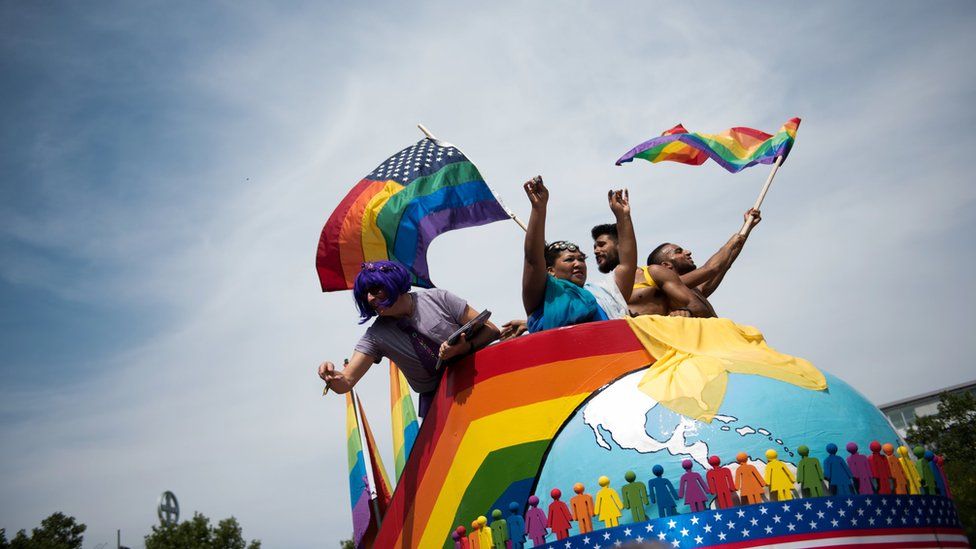
His father, who worked for the government, has gone into hiding for fear of the Taliban.
Most of the women Abdul knows won’t leave the house in fear of their lives. Some are taking the risk, but only when accompanied outside by a man.
Abdul isn’t hopeful about the Taliban’s promises to rule differently and give women more opportunities.
“Even if the Taliban accepts a woman in the government, in school, they will never accept gay or LGBT people. They will kill all of them on the spot.”
Abdul says he is “waiting to find a way to get out of the country”. There are some charities and campaigners trying to help Afghans like Abdul to safety.
Abdul says he has heard that the UK are planning to take 20,000 migrants from his country, but he says nobody knows how to apply or register themselves.
UK charity Stonewall has called on the UK government to start “helping LGBTQ+ Afghan refugees to survive, resettle and thrive.”
“I just want to say, if anyone is hearing my message, as a youngster, I have a right to live freely and safely,” Abdul says.
“I’m 21 years old. All my life, I spent it in war, in bomb blasting, losing friends, losing relatives.
“Just pray for us. Pray for our lives.”
source:
A Polish regional council voted last Thursday to remain an “LGBT-free zone” despite a warning from the European Union that it could lose funding, but its head said the declaration of the zone had been misunderstood and could be rewritten.
Numerous local authorities in Poland have declared themselves free of so-called “LGBT ideology” as gay rights have become a high-profile and deeply divisive issue in the predominantly Catholic country under conservative nationalist rule.
This has set Poland on a collision course with the European Commission, which says the zones may violate EU law when it comes to non-discrimination on grounds of sexual orientation.
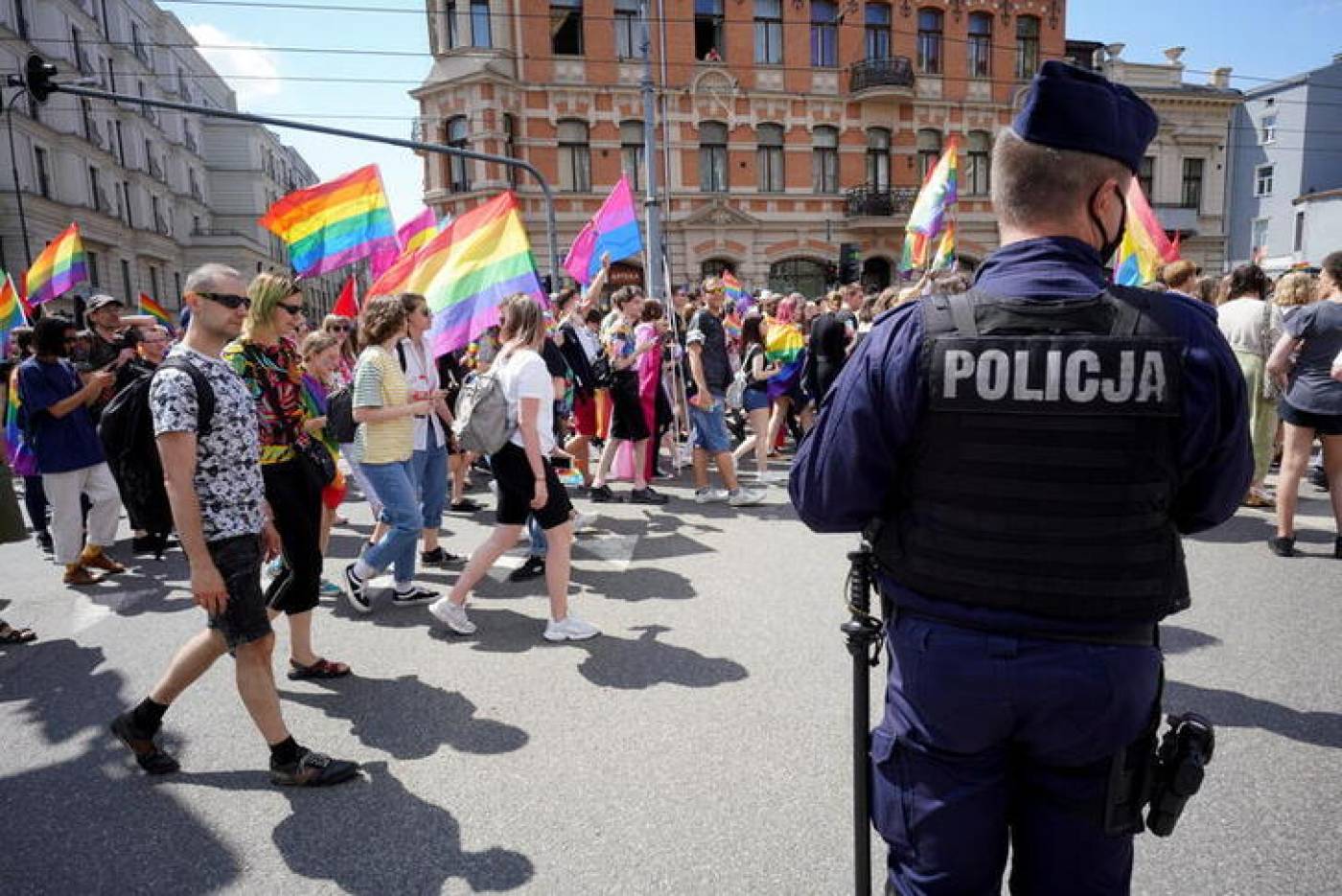
The southern Malopolska region said it had received a warning letter saying it could lose more than €2.5 billion of EU funds unless it revokes the declaration made in 2019 by mid-September.
Last Thursday the regional assembly voted on an opposition motion to revoke the resolution. But it was rejected by party representatives.
“We cannot simply deny what was said in 2019,” said council leader Jan Duda, who is the father of Poland’s President Andrzej Duda. “We need to meet and rewrite this declaration, as the one from 2019 has been misunderstood”,
Some religious conservatives in Poland say they do not have anything against gay people but oppose what they call “LGBT ideology”, which they say poses a threat to Christian values.
“LGBT-free zones” seek to ban the promotion of homosexuality and other minority sexual identities, especially in schools.
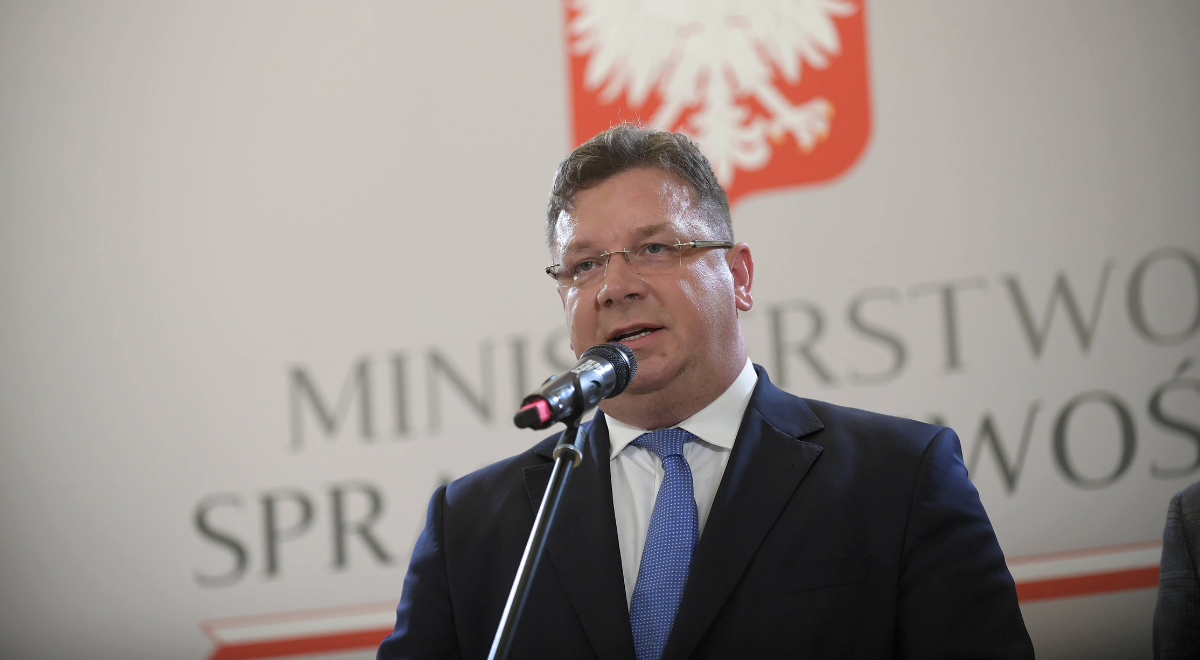
Michal Wojcik
“Once again, the hatred and anger of PiS turned out to be more important than the good of citizens, and they will suffer the most from this decision,” said Robert Biedron, a left-wing member of the European Parliament and Poland’s most high-profile openly gay politician.
Poland’s government denies having laws that discriminate against people based on their sexual orientation.
Praising the council’s decision, cabinet minister Michal Wojcik said: “Democracy and self-governance are winning.”
source:
SARAJEVO, Bosnia-Herzegovina – Hundreds of people attended a gay pride march Saturday in the Bosnian of capital Sarajevo, with organizers saying LGBT people have been further marginalized since the start of the coronavirus pandemic in the impoverished, conservative Balkan nation.
A colorful crowd walked through central Sarajevo carrying rainbow flags. The march was held under heavy security after hundreds of police had sealed off the area to prevent incidents with counterprotesters.
At the same time, dozens of opponents of the pride march held their own gathering in Sarajevo, saying they wanted to defend the country’s traditional values from an “aggressive” LGBT ideology. No incidents were reported at any of the gatherings.
People from Bosnia and Herzegovina, the Balkans and across Europe attended the Pride parade in Sarajevo under tight security measures taken by the Sarajevo Canton Government and the city’s police.
The Pride parade was also supported by European diplomatic missions.

In addition to the Pride parade, another counter-demonstration organised by Faith People State, which is led by Sanin Musa, also ended peacefully.
Musa said that with the rally, his group’s supporters are opposing the “aggressive introduction of LGBT standards in our families and public space and media.”
For the first time, money to pay for the security measures for this year’s Pride has been allocated by the Sarajevo Canton government, the city’s Centar municipality and the City of Sarajevo, a move that has been hailed by the organisers.
The Pride parade started at Safet Isovic Park around noon in the city centre and protestors marched to the Square of Bosnia and Herzegovina.
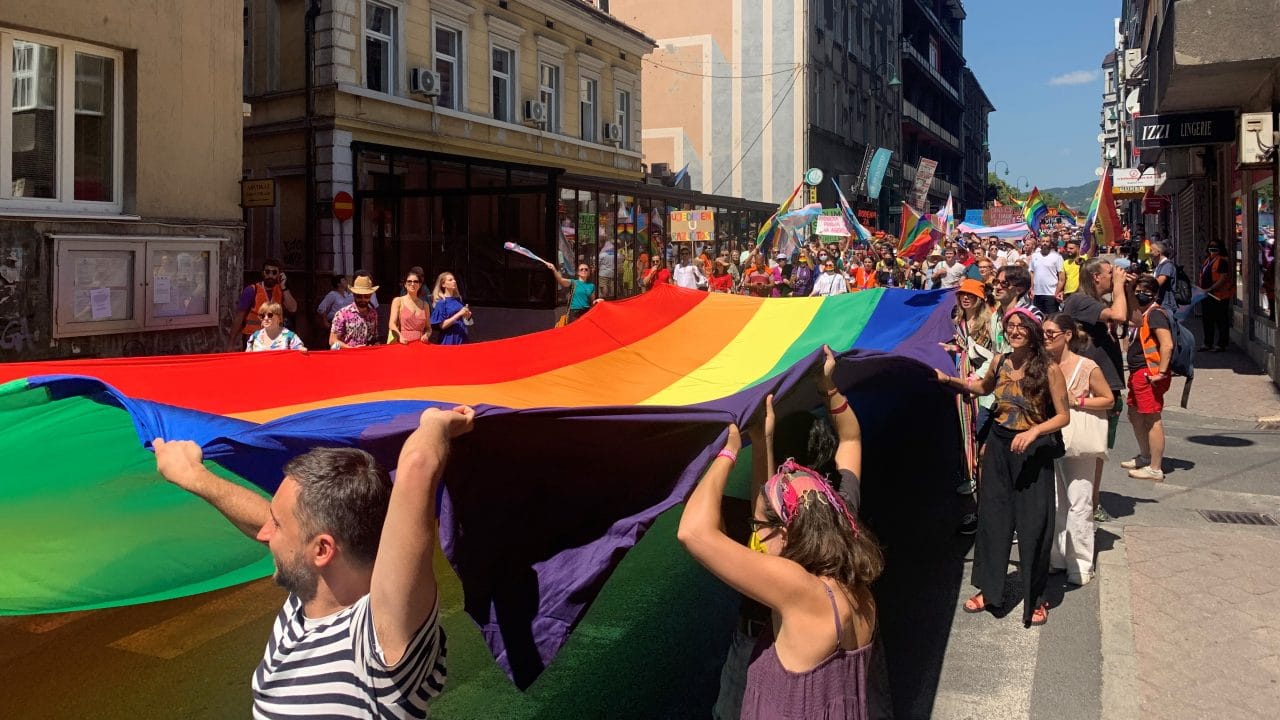
Bosnia was the only former Yugoslav republic that had not hosted a Pride parade until 2019. The socially conservative country has a history of violence targeting LGBT-themed festivals, most notably in 2008 and 2014.
The first pride march in Sarajevo was held in 2019, while last year’s event gathered only small numbers because of the pandemic.
source:
As the torch goes out at Japan National Stadium in Meiji-Jingu Park, the end has arrived for the 2020 Tokyo Summer Games — dubbed “the rainbow Olympics” by some for the record number of LGBTQ competitors.
Over the past two weeks, more than 180 openly LGBT+ athletes have taken to the tracks, pools and fields in Japan’s capital, according to the website Outsports, triple that of Rio in 2016, illustrating a surge in confidence among LGBT+ sportspeople.
At least 55 of those athletes, who competed in 35 different sports, won medals.
In fact, if the LGBTQ Olympians competed as their own country — affectionately labeled “Team LGBTQ“ by Outsports — they would rank 11th in the total medal count (right behind France and before Canada), with 32 team and individual medals: 11 gold, 12 silver and nine bronze.
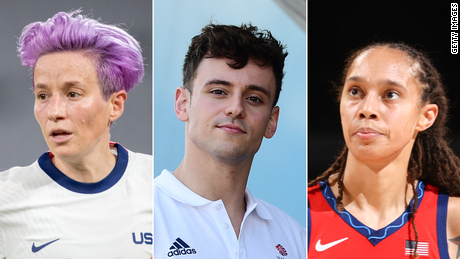
It was an Olympics of firsts in many ways – not just because more than 11,000 athletes competed in almost 350 events in near-empty venues to guard against COVID-19 infection.
New Zealand weightlifter Laurel Hubbard became the first openly transgender woman to compete at the Games, attracting both praise and criticism.
Canadian footballer Quinn, who uses only one name and is trans and non-binary – identifying as neither male or female – became the first trans athlete to win a gold medal as part of the national women’s team.
And British diver Tom Daley caused waves both in the pool and out, talking to reporters after his gold medal win with his diving partner Matty Lee in the men’s 10-metre synchronised platform event.
“I feel incredibly proud to say that I am a gay man and also an Olympic champion,” Daley said.
“When I was younger, I didn’t think I’d ever achieve anything because of who I was. To be an Olympic champion now just shows that you can achieve anything.”
Despite the popularity of LGBT+ celebrities like Daley, Russian reporting of the Games showed that homophobia remains a reality in many parts of the world.
Russia’s state-owned Rossiya 1 Network derided Daley as “a British homosexual”, while Russian talk show participants called LGBT+ competitors “perverts” and “psychopaths”.
The International Olympic Committee (IOC) said it would be investigating any abusive comments made on Russian channels that were official broadcasters of the Olympics.
“Discrimination has absolutely no place at the Olympic Games,” the IOC said in a statement.
However, for Angus Malcolm, chair of LGBT+ charity Sport Allies, the backlash in countries like Russia did not detract from the inspiration that LGBT+ athletes at the Games have given the next generation.
“My hope would be that some kid in Moscow can see through the state news to recognise him or herself,” Malcolm said.
source:
https://www.nbcnews.com
https://www.reuters.com
Two women married in the Montenegrin coastal resort of Budva on Sunday, a year after same-sex marriage was legalized, making them the first wedded gay couple in the small Balkan country’s history.
A municipal official in Budva, Milijana Vukotic Jelusic, said the marriage was between two young women, both from abroad but with Montenegrin origins.
“We are glad that our municipality was able to be the first to apply the Law on Life Partnership and we wish happiness and a lot of love to the partners in their life together,” Jelusic told the daily newspaper Vijesti.
In July 2020, parliament in Montenegro voted to legalize same-sex civil partnerships with a very narrow majority of MPs from the then ruling Democratic Party of Socialists, DPS, the Social Democrats, the Liberal Party and the opposition Social Democratic Party.
The change was supported by only 42 MPs in the 81-seat chamber.
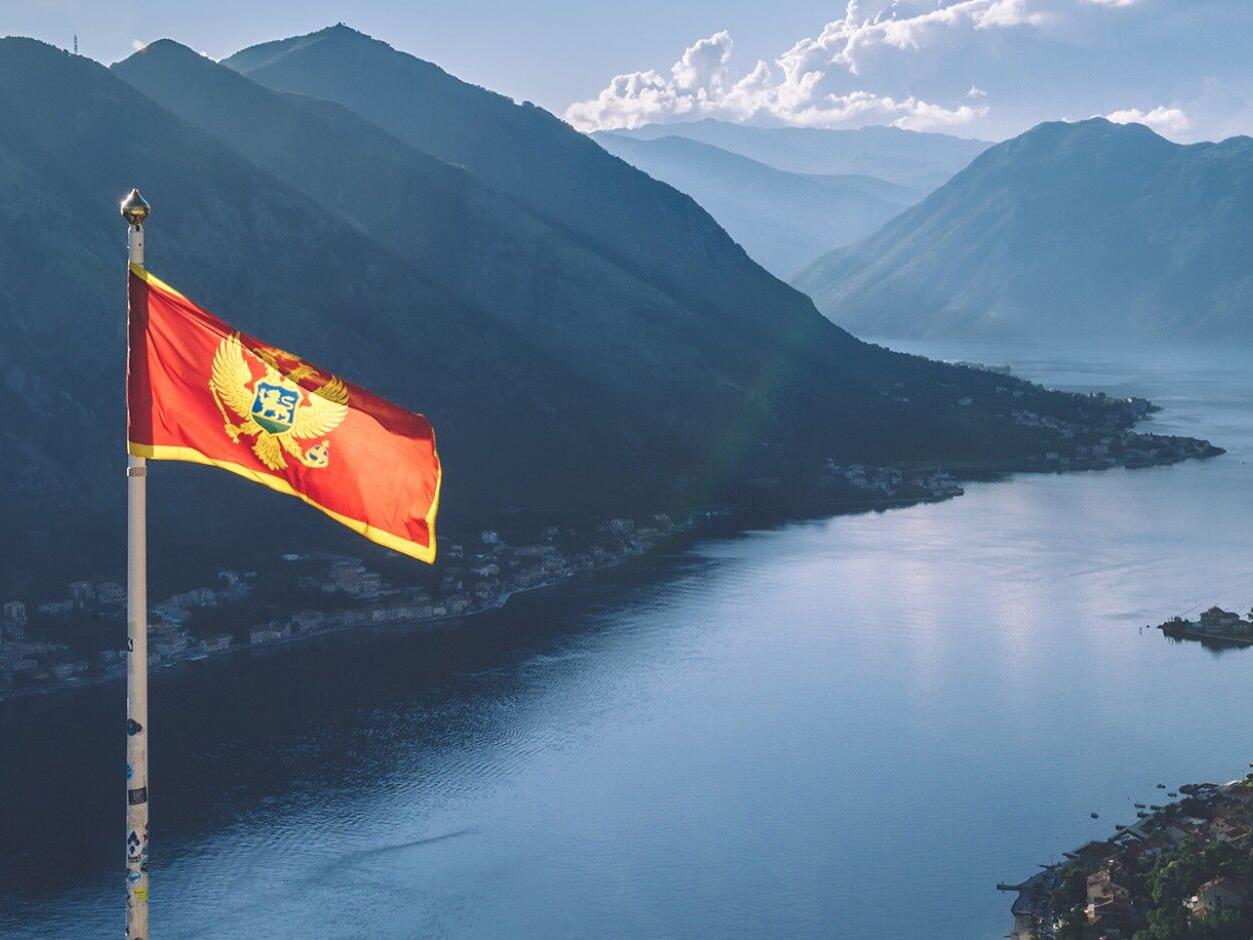
By law, the government had a deadline of July 15 this year to harmonize the legislative framework with the new law under which same-sex couples can enter into a legal union at their local registry office.
The law also allows the regulation of mutual financial support and division of joint property in the event of divorce. It grants those in a same-sex civil partnership the right to social security and health cover based on their partner and regulates family visits to hospitals or jails.
The law adopted in 2020 does not include provisions to allow same-sex couples to adopt children.
The law was condemned by not only the main opposition bloc in parliament, Democratic Front, but also every ethnic minority party, including those representing Bosniaks, Albanians, and Croatians, according to Balkan Insight.
“The main goal of this law is to impose a new value system. After everything they took from us, now they want our families,” said Democratic Front leader Nebojsa Medojevic.
Montenegro is generally considered deeply socially conservative, with a largely Orthodox Christian population.
Balkan Insight also noted that despite support from the authorities, homosexuality remains a sensitive issue in Montenegro. It quoted a survey suggesting that 71 per cent of citizens “viewed homosexuality as an illness” and half of them considered the law on same-sex partnerships “a danger to society.”
Montenegro decreased from 4.5 in 2004-2008 to 3.6 in 2014-2017, being ranked as less accepting of LGBT than 108 countries, including Libya and Yemen.
Montenegro failed twice before to recognise same-sex unions – in 2014 and 2019. When it succeeded in July 2020, it became the only non-EU ex-Yugoslav republic to do so, although Serbia has similar legislation in the pipeline.
Of other former Yugoslav republics in the region, EU-members Croatia and Slovenia have legalized same-sex unions.
source:
Tom Daley and his diving partner, Matty Lee, brought home a gold medal for Team Great Britain Monday, after narrowly winning the 10-meter synchronized diving at the Tokyo Olympics.
The victory was especially meaningful for Daley in his second Olympics as an openly gay man.
“I feel incredibly proud to say that I am a gay man and also an Olympic champion,” said Daley who was visibly emotional. “And I feel very empowered by that because when I was younger, I thought I was never going to be anything, or achieve anything, because of who I was, and to be an Olympic champion now just shows that you can achieve anything.”
Daley and Lee had produced a stunning performance in the synchronised 10m platform to take the gold medal by one point ahead of the supercharged Chinese pair Cao Yuan and Chen Aisen.
For Daley this was also a very public moment of fulfilment after bronze medals in London and Rio, a period that has coincided with marriage to the film producer Dustin Lance Black and the birth of their son, Robbie.
In the glow of victory, Daley spoke with startling clarity about the pressures he has faced in the course of a life lived in a uniquely pitched public glare.
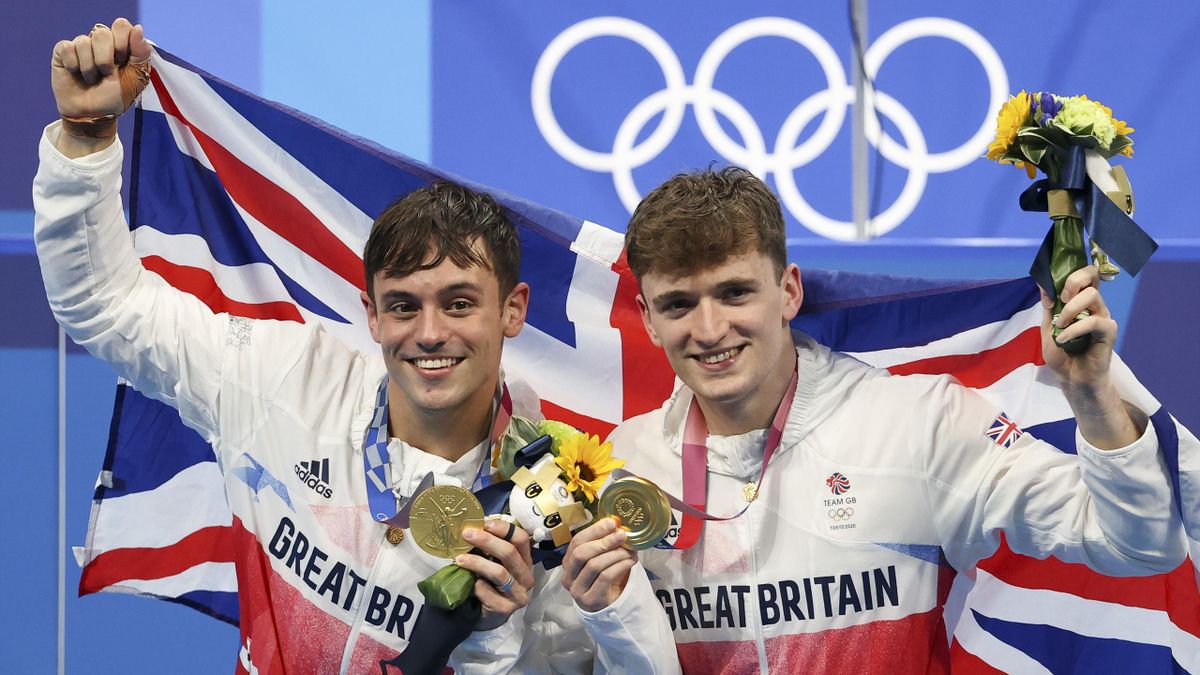
Daley came out in 2013 shortly after he began dating his now-husband, Dustin Lance Black. He said at that time he “felt like the one that was alone and different and didn’t fit in.”
Now, he said, “I hope that any young LGBT person out there can see that no matter how alone you feel right now, you are not alone. That you can achieve anything and that there is a whole lot of your chosen family out here, ready to support you.”
Daley won bronze medals at the London Games in 2012 and the Rio Olympics in 2016. Monday’s gold-medal win was a long time coming after two third-place finishes.
“To finally have this gold medal — I’ve been diving for 20 years. It’s my fourth Olympic Games,” Daley said after his victory. “Lots of people would have counted me out, being the older person, but I’m in the best shape, physically.”
Daley’s American-born husband won a screenwriting Oscar in 2008 for “Milk,” the biographical film based on the life of gay rights activist and politician Harvey Milk.
The couple married in 2017 and had their first child, a son, the following year.
“The fact that I can say my son watched me become an Olympic champion, albeit on TV because they couldn’t be here, is such a great feeling,” Daley said.
Daley was also asked about his father, who died when he was 17, and who was a major support in those early years. “When he passed away in 2011 it was extremely difficult for me because he never saw me win an Olympic medal, get married, have a child. He never got to teach me to drive, have a pint down the pub.
“None of that was ever a thing so to finally become an Olympic champion, especially after Rio 2016 where I was extremely disappointed with my individual performance. After that, my husband said to me that my story doesn’t end here and that our child was meant to watch me become an Olympic champion.”
source:
Russian authorities have rejected a European Court of Human Rights order to recognise same-sex unions.
Kremlin spokesman Dmitry Peskov has reaffirmed that same-sex marriages are “not allowed” under Russia’s constitution.
The Strasbourg court had issued a ruling last week urging Moscow to formally acknowledge homosexual couples.
But senior Russian lawmakers have accused the court of “meddling” in the country’s internal affairs.
Under constitutional amendments adopted last year, Russia outlawed same-sex unions by stipulating that the “institution of marriage is a union between a man and a woman”.
The amendments will also allow President Vladimir Putin to stay in power for two more six-year terms after 2024.
But the European Court of Human Rights was urged to rule on the amendments, and whether Russia had violated its citizen’s right to respect for private and family life.
The case was brought by three Russian same-sex couples after officials rejected their attempts to get married.
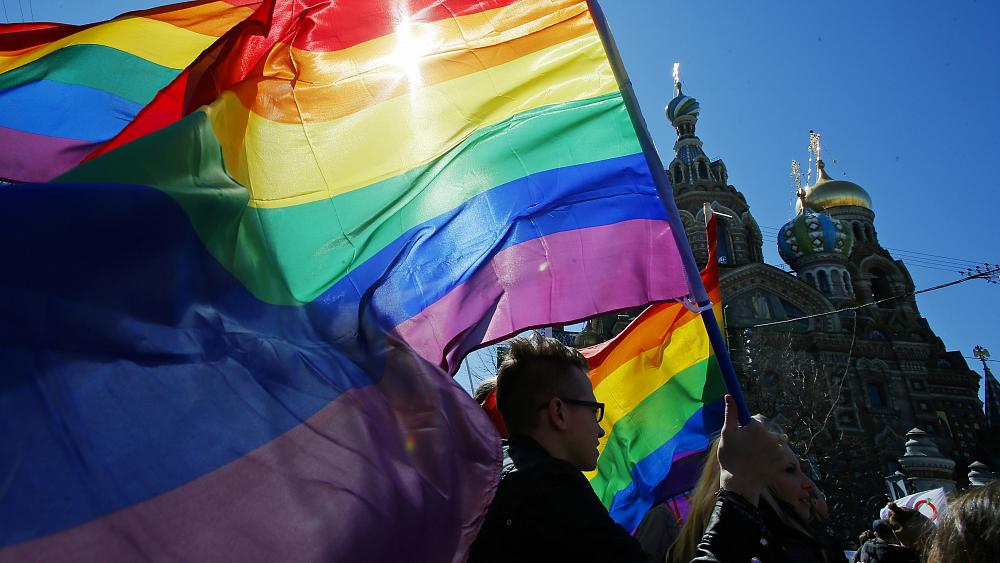
And in last week’s ruling, the court found that Russia could give same-sex couples “access to formal acknowledgment of their couples’ status in a form other than marriage.
“[This] would not conflict with the traditional understanding on marriage” that prevails in Russia, judges said.
The court rejected the Russian government’s argument about widespread public disapproval of same-sex unions, saying that “access to rights for a minority could not be dependent on the acceptance of the majority”.
Natalia Zviagina, director of Amnesty International’s office in Moscow, said the court’s landmark decision underlines that Russia “is on the wrong side of history” and is depriving LGBTI people of their basic human rights.
But Vasily Piskarev — a Russian MP who leads a parliamentary commission on foreign interference — has rejected the Strasbourg court decision.
“The ruling, which tries to make Russia register same-sex marriages, contradicts the foundations of Russian rule of law and morality,” he said in a statement on Telegram.
“This is clear systemic meddling in Russia’s internal affairs,” he added.
source:
https://www.euronews.com
The European Commission launched legal action against Hungary over measures it said discriminated against LGBT people, stepping up a battle over values with Prime Minister Viktor Orban that could hold up EU funding for Budapest.
The European Union’s executive branch also opened a case against Poland on Thursday after several of the country’s towns declared themselves “LGBT-free” and unwelcoming toward queer people.
The action against Hungary related to a new law that bans schools from using materials deemed as promoting homosexuality. Rights groups have rallied against the legislation which Commission head Ursula von der Leyen has called a “disgrace”.
Hungarian authorities have portrayed the law as part of their fight for so-called “traditional values”, while analysts have noted that prime minister Viktor Orbán is trying to appeal to his Christian conservative base ahead of elections next spring. “They want to force us to let sexual propaganda spread among our children,” wrote justice minister Judit Varga of the commission on Twitter on Wednesday. “The [European] Union can’t tell how Hungarian parents should raise their children in Hungary.”
Critics of Hungary’s new law have compared it to Russia’s 2013 “gay propaganda law,” which bans distributing information about LGBTQ issues and relationships to minors.
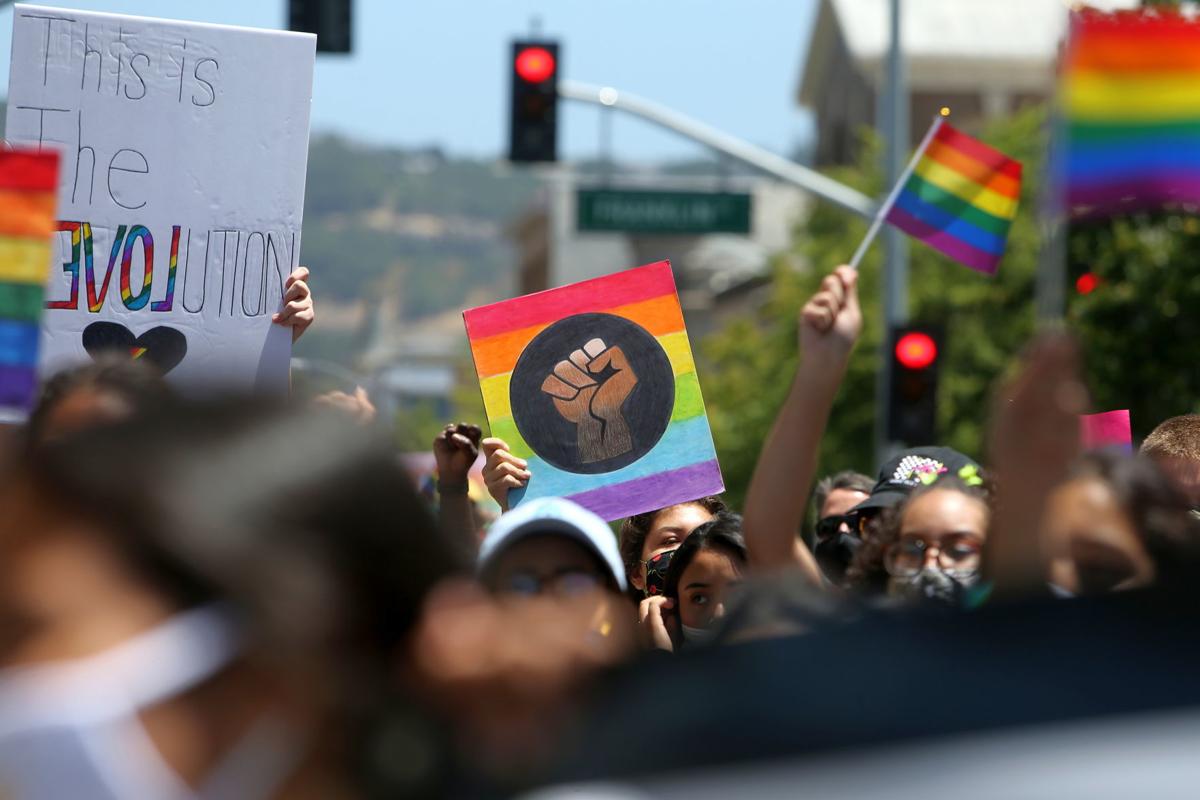
In its statement Thursday, the European Commission said Hungary “has failed to explain why the exposure of children to LGBTIQ content” would be “detrimental to their well-being or not in line with the best interests of the child.” The commission said the law violates human rights under European Union law and breaches the bloc’s treaty principles in the free movement of goods across member states.
The European Union’s executive branch also took issue with Hungary’s demand for a disclaimer on a children’s book that includes LGBTQ characters. The move, the commission said in a statement, restricts free expression and the right to nondiscrimination under E.U. law.
The European Commission said it acted against Poland over LGBT-free zones because it was concerned they may violate EU law regarding non-discrimination on grounds of sexual orientation.
It added that had not received sufficient information about the zones from Warsaw.
Poland’s government denies having laws that discriminate against people based on their sexual orientation.
The governing Law and Justice Party (PiS) says gay rights are a threat to the traditional lifestyle in one of the most Catholic countries in Europe.
Hungary and Poland, both members of the European Union, have two months to respond to the arguments put forward by the commission. If they fail to do so, they could be referred to the European Union’s Court of Justice, the commission warned.
source: